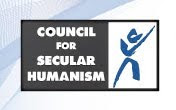The Hall of Mirrors

It is said that true consciousness requires conscious of itself. Short of that, it is only sentience or awareness of what is outside. A flower or a tree is sentient. For example, consider phototropism of plants. But is a plant aware of its own phototropism? Not likely. In the animal kingdom, it is more obvious that sentience exists, but is it consciousness? Perhaps in some cases it is, but we have no proof of self-consciousness until language is used to describe the experience of the self to others. Of the animals, only apes and dolphins have learned some of our language; and we have not learned the language of any other species, as far as I know. We consider our language to be the very measure of intelligent consciousness. And self-consciousness brings the capability to question one's desires and choices, which is to say, to plan and influence one's own behavior. Without that degree of self-examination, how can we speak of free will? This is attention to what Keith Stanovich refers to as "second order desires," which he sees as distinguishing us from animals. We can seek to improve on our Autonomic Set of Systems, and try not to be such ASSes.
Most of us experience a certain fascination with the "hall of mirrors" effect, which appears when two mirrors near alignment so that they reflect into each other. We can peer around the edge of one mirror and see ourselves repeated many time over, like those industrious broom clones in Disney's "The Sorcerer's Apprentice." Human intrigues begin with trying to outguess another in a form of gamesmanship. We say "I could do A. But you probably know I will do A so you will do B to counter me. So I will do C instead, to keep you guessing. But then you might guess that I have guessed that you have guessed what I will do. So perhaps I should do something different?" It doesn't take much recursion to create a lot of confusion, and we have to decide how far to go. But this kind of thought process permeates the interactions among conscious (self-aware) individuals. It is perhaps most evident in games like Chess, where anticipating the moves of one's opponent is critically important to play an effective game. And in team sports or business, one must successfully anticipate the moves of one's teammates as well. So perhaps it is not just the consciousness of self that is key here, but the consciousness of being conscious of self, and of others and their consciousness. It was with this in mind that I took the self-portrait using my computer's web camera.
Another thing I had in the back of my mind was imagery from M C Escher's graphical work, which I have loved ever since I was presented with a book of it as a college graduation present. While Escher seems not to have ever drawn the "hall of mirrors" he was fascinated with reflections, especially from curved surfaces, and did a number of works that feature them. It always intrigued me that Escher chose to give a glimpse of himself and his world, embedded within his drawings. So in this world of blogs and social networking, where one puts out an image of oneself through the things one posts, I have posted a photograph here that I intend as an expression of my own consciousness. Think of it as taking the narcissism of the web a step further, an assertion of confidence. Rather late in a life of excessively self-conscious anxiety, I have found a lot of comfort in my own skin, and it feels great.
Some would call me a cheat, call me a liar
Say that I've been defeated by the basest desires
Yes I have strayed and succumbed to my vices
But I tried to live right
But I have no regrets, no guilt in my heart
I only feel sadness for any pain that I've caused
I guess I wouldn't bother to worry at all
If I'd lived right
Do you live by the book, do you play by the rules?
Do you care what is thought by others about you?
If this day is all that is promised to you
Do you live for the future, the present, the past?
If there is one thing I know, I know I will die
If anyone cares some stranger may critique my life
I may be revered or defamed and decried
But I tried to live right
There would be psalms sung by a choir
I would have a white robe, a halo newly acquired
I'd be at peace and I'd have no desire
If I'd lived right...
Unsung Psalm by Tracy Chapman




